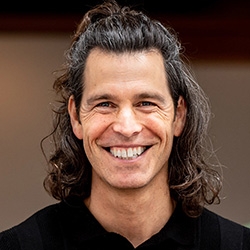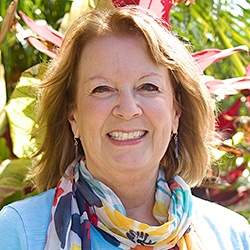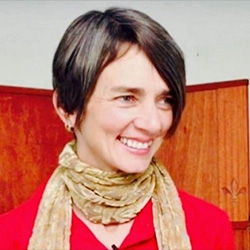

Search Results: applying nvc
-
These downloadable cards are graciously offered to help busy parents who want more time and less struggle.
-
Want things to change in your community, but feel frustrated or don’t know what to do? Miki’s intriguing overview of how to apply the principles of NVC to social change movements may have the exact blend of inspiration and ideas you’re seeking!
-
Here are 14 more key differentiations that are not, at time of publishing this, on the CNVC key differentiations list. They can be used to support people who are on the path of learning and integrating NVC in making sense of their own understanding of their journey and where they are within it. And it can be used to support people who share NVC with others in offering brief information in support of understanding and learning.
-
In A Worldwide Field of Compassion, Robert Gonzales presents an engaging course steeped in compassion-based self-discovery for ourselves and all life. Recorded in 2020, this 8-session course includes handouts, readings, exercises, and video recordings!
-
Self-compassion is essential for healing trauma and restoring your wholeness. It is also an antidote to reactivity and separation, allowing presence to emerge.
In developing presence, you can become what the world needs most in these times of intensity and chaos. This work can strengthen your skills to be more fully in relationship with all that life offers while allowing your heart to be moved by what is alive in you and with others
-
Living Compassion in an Ever-Changing World is the last course that Robert Gonzales offered before his passing in November of 2021. It is an intermediate course whose purpose is to deepen our conscious connection to our own vital life force, to develop skills that support inner healing, and to grow and strengthen daily practices that allow us to truly live life to the fullest.
-
Robert's passion was in the spirituality of the Nonviolent Communication (NVC) process. He saw NVC both as a process that helps people connect more authentically with themselves and others, and as a spiritual practice and way of living. The worldwide NVC community mourned when Robert died in 2021. He left behind a legacy of work that emerged from a lifetime of inquiry into the intersection between spirituality and human communication.
-
In Yoram’s 2021 course, participants delved deeper into their NVC practice so they were better prepared to meet conflict head-on. In this 5-session series, Yoram explores: the power of empathy to change the trajectory of heated conversations embracing the internal conflicts of the different parts of ourselves how to approach differing views peacefully the use of NVC to help let go of judgments how to confidently ask for what you want
-
Join Yoram Mosenzon in his 4 session course. It is designed to help you more fully integrate NVC values and language into your daily life. Plan on practicing Nonviolent Communication's Radical Honesty through demonstrations, role-playing, and exercises designed to help you more fully integrate NVC values and language into your daily life.
-
This is the first in a series of tips on applying NVC to daily life. In this episode, Shantigarbha offers five tips for improving communication in relationships.
-
In this, the second in a series on applying NVC to daily life, Shantigarbha offers five tips for recognizing where communication is likely to go awry.
-
In the third in a series on applying NVC to daily life, Shantigarbha follows directly on from Episode 2, showing us that listening isn't a passive activity, and offers five tips for how to improve our listening skills.
-
Even those who practice NVC can repeat old patterns of thinking, believing, feeling, and behaving. If they do, but still use ‘NVC language’ others may think the issue is NVC rather than the person’s capacity. This week, notice even a small instance where someone is against something you suggest. To build trust and connection, experiment with offering empathy or asking them to share what they think, feel, or need.
-
Join Mary Mackenzie, Certified NVC trainer, as she offers ways to incorporate NVC empathy guesses, feelings and needs into everyday conversations. This approach is geared towards adding deeper connection to the natural flow of conversations. The technique has become known as Street Giraffe.
-
Join Elia Lowe-Charde as she shares a story that beautifully illustrates how boundaries are akin to consciously directing our precious energy. She artfully expands upon this concept by highlighting that life-serving boundaries embody the wisdom of discernment.
-
Building relationships happens through dialogue and understanding the deeper meaning behind the words spoken. It’s about active listening that focuses on feelings and needs so you may truly comprehend the speaker’s message. In this video, Duke introduces two components of communication and how the restorative dialogue process supports mutual understanding.
-
- Explore the complexities of how we can care for all of life using NVC
- See the role that power plays in relation to observations, feelings, needs, and requests
- Learn how to support people from many backgrounds in being able to apply NVC
- Discern how to engage with these vast topics as we learn and share NVC
-
-
As parents, we often face challenging situations on a daily basis and struggle to create what we most long for. In this 6 session telecourse recording, you will learn how Nonviolent Communication can support a family culture where cooperation, trust, and peace are nurtured, and children and parents can flourish together.
-
Discover how the perennial strength of compassion and the living energy of needs can help you develop resilience in order to remain present with yourself and others amidst today's challenges.

Quick Links
Subscription Preferences
Stay In Touch!
Looking for ways to keep up with NVC Academy news, get special offers, free resources, or words of inspiration? Here are five ways to stay engaged:


















